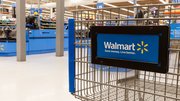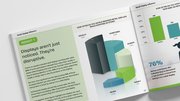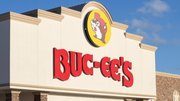Article
Top 100: 1,2.The economy/gas prices

July 5, 2010 by James Bickers — Editor, Networld Alliance
Call it two different sides of the same lack of coin: The first and second place finishers in our survey of the 2009's movers, shakers, brands and trends are closely related to one another, but impacted retail in different ways.
In 2004, average gas prices in the United States oscillated between $2.00 and $2.50 per gallon. In the middle of 2008, they were above $4 a gallon in most cities. Tempers flared and arguments abounded about what was to blame — was this legitimate supply/demand, price fixing, government dunderheadedness, something much worse? — but the undeniable consequence was that people simply drove less.
That had a big impact on retail, particularly non-grocery retail with its many players whose offerings were wants rather than needs. A day at the mall or a trip to the outlet center now had a cost above and beyond the money that would be spent once there — now, just getting there was a non-trivial matter.
Gas prices have since gone down to levels that are more acceptable, but a new threat to the wallet has emerged, one that is going to be with us much longer.
In December of 2008, the National Bureau of Economic Research confirmed what many people had been thinking for some time: The country is in recession. Oh, but wait, that’s not all, the report went on to say — we’ve actually been in one since December of 2007.
It has been a catastrophic period for many people, and that has in turn spelled catastrophe for the companies serving them. In terms of job losses, 2008 was the worst year since World War II, with 2.6 million people laid off. In 2009, world unemployment hit 200 million for the first time. The change in consumer behavior has been unmistakable, and it appears those changes will endure even once the dark times are over.
Speaking at last year’s National Retail Federation (NRF) show in January, outgoing Walmart CEO H. Lee Scott Jr. said some things that might be considered heretical coming from the mouth of a retail executive. Noting that consumers are now more frugal and are likely to remain so: "I’m not sure, from a society’s standpoint, that that is all that bad … (the poor economy) is very unfortunate, but in some ways it’s healthy."
Retailers are reacting swiftly, and marketing campaigns reflect sensibilities and ideas that would have seemed quaint, if not laughable, just a few years ago during the height of the McMansion era: Kraft television ads point out how affordable grilled cheese sandwiches are, Target ads highlight affordable luxury items for just a few dollars each, and prefab meal companies urge shoppers to switch to frozen meals once a month to save hundreds of dollars each year.
But as appealing as "recessionista chic" may be at the moment, retailers are wise to remember that it does no good to be perceived as cheap. Value, yes; cheap, no. Bob Phibbs, retail trainer and author of "The Retail Doctor's Guide to Growing Your Business," calls the recession "an excuse to do poorly" and a scapegoat for unparalleled and often damaging discounting.
Download the complete Top 100.
 ChatGPT
ChatGPT Grok
Grok Perplexity
Perplexity Claude
Claude




